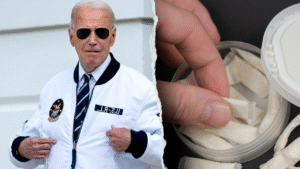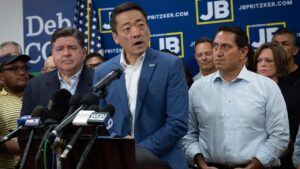A recent federal court battle concerning President Donald Trump’s authority to impose tariffs on U.S. trading partners will likely be appealed to the Supreme Court, legal experts have revealed. The case, which will test the executive branch’s power, revolves around Trump’s use of a 1977 emergency law to impose import duties on various countries trading with the U.S.
The U.S. Court of Appeals for the Federal Circuit is expected to issue a ruling in the coming weeks, possibly in August or September, after hearing the case on an expedited basis. This timeline sets the stage for a potential Supreme Court review during the 2025-2026 term starting in October.
Both the Trump administration and the plaintiffs’ lawyers intend to appeal to the Supreme Court if the lower court ruling is unfavorable. Market analysts speculate on the impact of Trump’s tariffs, which the three-judge panel of the U.S. Court of International Trade had previously blocked.
During the recent oral arguments, the judges posed tough questions to both parties, leaving the outcome uncertain. Experts believe that even if the Supreme Court rules against the use of the emergency law, the administration has other trade tools at its disposal. The Trump administration’s emphasis on trade issues suggests that they will continue to pursue their trade agenda regardless of the court’s decision.
Legal experts predict that the ongoing legal battles over President Trump’s trade policies will continue for some time. Both Pickard and Rayfield anticipate a ruling from the appeals court in the coming weeks.
Trump recently imposed a 10% baseline tariff on all countries, in addition to reciprocal tariffs aimed at specific nations such as China. The President’s goal is to address trade imbalances, reduce deficits with key trading partners, and promote domestic manufacturing and production.
Pam Bondi, the U.S. Attorney General, affirmed that the administration’s legal team will vigorously defend Trump’s trade agenda in court. She emphasized the importance of these tariffs in transforming the global economy, safeguarding national security, and tackling the growing trade deficit.
Breanne Deppisch, a national politics reporter for Fox News Digital, specializes in covering the Trump administration, focusing on the Justice Department, FBI, and other national news.





